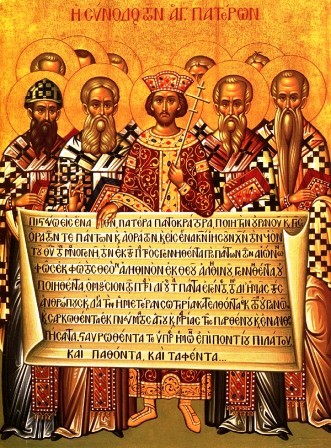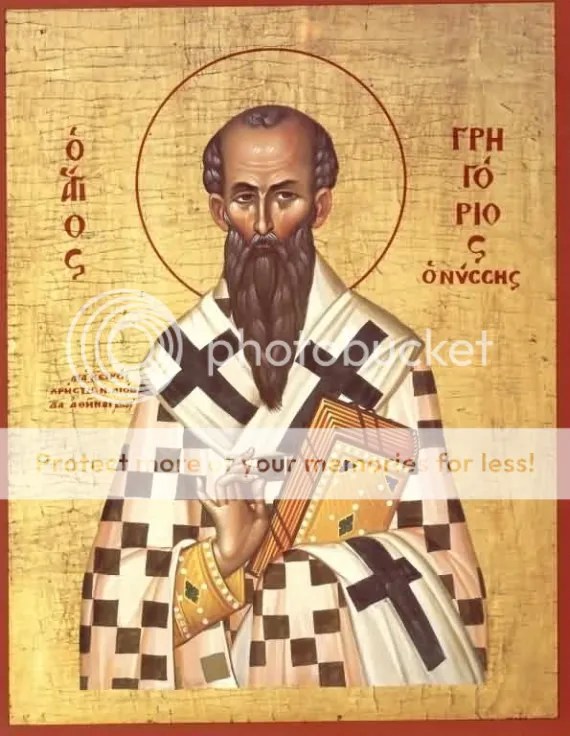This is not real history, regrettably. The Alexandrian synod condemned Origen in 400. Rome condemned Origen in the 490s. Even saints like Gregory of Nyssa make reference to eternal damnation in his writings, which may be why those who have not read Origen's voluminous works may have assumed that he, as a confessor, was not a universalist.
Does a local synod have the same binding authority over the entire Church as an ecumenical council? As for the condemnation, Origen taught a number of things which were highly questionable regarding orthodox theology (pre-existence of souls, etc). Was Apokatastasis mentioned specifically, or are you using this as a catch all to include a doctrine which you distinctly do not like? If the intention was to condemn Apokatastasis, then where is the condemnation of this statement:
- St Gregory of Nyssa
Even after the sixth century condemnation of Origenism, commonly attributed to the Fifth Ecumenical Council (553), the Seventh Ecumenical Council (787) referred to St Gregory of Nyssa (c.335-c.395) as “father of the fathers” and “divine luminary of Nyssa.” Notably, no council ever condemned Gregory or his revised
apokatastasis. In
On the Soul and the Resurrection he taught ultimate redemption more boldly than Origen. And far from being a minor blemish on the fringe of his theology, Gregory’s universalist
theosis permeates the whole and is central to it. For those who care to hear his blessed
hope, this sample from his treatise on 1 Cor. 15:28 is typical:
What therefore does Paul teach us? It consists in saying that evil will come to nought and will be completely destroyed. The divine, pure goodness will contain in itself every nature endowed with reason; nothing made by God is excluded from his kingdom once everything mixed with some elements of base material has been consumed by refinement in fire. Such things had their origin in God; what was made in the beginning did not receive evil. Paul says this is so. He said that the pure and undefiled divinity of the Only-Begotten [Son] assumed man’s mortal and perishable nature. However, from the entirety of human nature to which the divinity is mixed, the man constituted according to Christ is a kind of first fruits of the common dough. It is through this [divinized] man that all mankind is joined to the divinity.
Those who think to deny the Orthodoxy of the final editor of the Nicene Creed ought not tread where the 5th council dared not. As for me, at the least, St Gregory of Nyssa permits me to hope.
Your objection is a common one, but I find that one of the problems with it is
TRANSLATION. I have found several statements from the Fathers which appear to speak of "eternal torment" or "eternal punishment" which are not true to the Greek. The Greek original uses "aionios," but Western and Latin translators have translated this as "eternal." Couple this with the refusal to condemn all other Fathers who taught Apokatastasis, and you have evidence that this was indeed taught and believed from the very beginning.
Universalistic apokatasis is a condemned heresy in the 7th eecumenical council. Origen is anthematized in Constantinople II's decree, Trullo's first Canon, and Nicea II's decree.
Nope. I read the canons and I don't find it in any of the canons. There is no mention of it in Constantinople II. Now, if you wish to defend your position by appealing to the now discredited canons of Emperor Justinian, who imposed them upon the council under threat and without any justification at all, then be my guest. I refuse to acknowledge them as legitimate, as modern scholars and scholarship have shown them to be bogus as a three-dollar bill. So bogus, in fact, that the Catholic Encyclopedia Online refuses to publish them as part of Constantinople II's canons.
Merely positing a "Justinian conspiracy" does not undo the universal tradition of the Orthodox Church, because we accept our Councils. The fact you don't shows you are outside the pale of Orthodoxy and should not be claiming this is the Orthodox tradition. It obviously is not and is a condemned heresy.
It is not a "Justinian conspiracy." I am not the only one that questions what he did. As stated, modern scholarship rejects them. He gaslighted the council and held it under threat of violence, having kidnapped Pope Virgilius, who wanted no parts of it. Doesn't the Bible say something about kidnapping? That was a sin unto death, according to the law of the OT, but I guess when you are an Emperor and want something, kind of like Joe Biden and his disdain for the Catholic faith, you do what you wish and the Bible be hanged.
This most certainly IS an Orthodox tradition. Four theological schools teaching it for 500 years, multitudes believing it, some of the greatest Fathers of the Church teaching it, and you want to say this is NOT an Orthodox tradition. For the love of Pete, will you PLEASE do a little research into this and stop with the knee-jerk reactions? I didn't just wake up one day and decide that I liked the idea of God saving all. I spent a few years in constant research into the history, the people, and the politics of how this came about and who opposed and killed it in the Christian faith.
The same person who declared that unbaptized babies suffer eternal hell is the same person who opened the charge against Apokatastasis. This is history, and quite frankly, anyone whose mind is so darkened that he consigns the innocent unbaptized to eternal suffering is not a theologian for whom I have a great deal of respect or whose thoughts will hold court in my mind.





